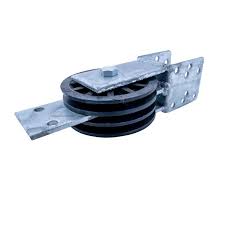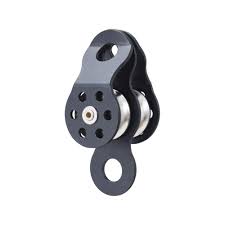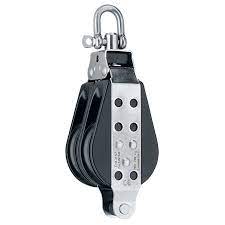Product Description
25 YEARS manufacturer Multiple engine/Size Crankshaft Tensioner, Belt Pulley Double Groove 4TNV94/98 Replacement of Many Types of machine excavator.
Our main products:
steel cover lock, filter, oil grid, pump, cylinder head, crankshaft, camshaft, connecting rod, connecting rod bearing, valve, plunger, nozzle, exhaust valve, engine assembly, intake pump , fan blade, engine preheater, radiator, intake valve, main bearing, crankshaft bearing, nozzle, nozzle pipe, oil pump, piston, piston pin, piston ring, plunger, valve seat, thrust bearing, valve guide, valve Seats, valve seals, gasket sets, water pumps, turbochargers, generators, starters, sensors…
Please click here>>>>Contact us for more factory price,shipping and discounts
| ENGINE CUSHION | ||||||||||||||
| NO. | LB NO. | Model | OEM NO. | Name | NO. | LB NO. | Model | OEM NO. | Name | NO. | LB NO. | Model | OEM NO. | Name |
| 1 | KLB-Q3 | BELT TENSIONER | 15 | KLB-Q0017 | SK350-8 4pieces groove | BELT TENSIONER | 28 | KLB-Q0032 | 4BD1 4BG1 A:singlePK B:3PK |
3389198 | CRANKSHAFT PULLEY | |||
| 3 | KLB-Q0003 | 6CT | 3967190 | BELT TENSIONER | 16 | KLB-Q0018 | SK460 3pieces groove | BELT TENSIONER | 29 | KLB-Q0033 | EX200-1/3 6BD1 | CRANKSHAFT PULLEY | ||
| 4 | KLB-Q0004 | EC210 | 462280 | BELT TENSIONER | 17 | KLB-Q0019 | VOLVO360 | BELT TENSIONER | 30 | KLB-Q0034 | 6D31(NEW) | 173*140*34 | CRANKSHAFT PULLEY | |
| 5 | KLB-Q0005 | E325C | 144-1102 | BELT TENSIONER | 18 | KLB-Q571 | S6K | BELT TENSIONER | 31 | KLB-Q0035 | 6D31(OLD) | 160*120*34 | CRANKSHAFT PULLEY | |
| 6 | KLB-Q0006 | PC200-8 | BELT TENSIONER | 19 | KLB-Q0571 | PC60 4D95 | 150*66*43 | CRANKSHAFT PULLEY | 32 | KLB-Q0036 | E200B/320 | 160*113*45 | CRANKSHAFT PULLEY | |
| 7 | KLB-Q0007 | VOLVO210 stainless steel | BELT TENSIONER | 20 | KLB-Q0571 | PC120-6 | CRANKSHAFT PULLEY | 33 | KLB-Q0037 | E320B | 160*110*45 | CRANKSHAFT PULLEY | ||
| 8 | KLB-Q0008 | VOLVO360 | BELT TENSIONER | 21 | KLB-Q571 | PC200-3 6D105 | 144*113*39 6138-31-1480 | CRANKSHAFT PULLEY | 34 | KLB-Q0038 | E320C | 170*143*45 | CRANKSHAFT PULLEY | |
| 9 | KLB-Q0009 | CA016/C7 | BELT TENSIONER | 22 | KLB-Q0571 | PC200-5 6D95 | 150*110*41 6207-31-1410 | CRANKSHAFT PULLEY | 35 | KLB-Q0039 | DH220-5 DB58 | CRANKSHAFT PULLEY | ||
| 10 | KLB-Q571 | VOLVO480 with Belt groove | BELT TENSIONER | 23 | KLB-Q0571 | PC200-6 6D95 | 155*154*42 6209-31-1410 | CRANKSHAFT PULLEY | 36 | KLB-Q0014 | DH | 2107-6004B | BELT TENSIONER | |
| 11 | KLB-Q0011 | VOLVO480 | BELT TENSIONER | 24 | KLB-Q0026 | PC200-6 6D102 | 6735-61-3280 220*54*19 | CRANKSHAFT PULLEY | 37 | KLB-Q0015 | EX | BELT TENSIONER | ||
| 12 | KLB-Q0012 | VOLVO480 | BELT TENSIONER | 25 | KLB-Q0571 | PC300-3 PC400 6D125 | 182*118*43 | CRANKSHAFT PULLEY | 38 | KLB-Q571 | EX200-5 6BG1 3pieces groove | 230*120*40 | CRANKSHAFT PULLEY | |
| 13 | KLB-Q0013 | E320C | BELT TENSIONER | 26 | KLB-Q571 | A:PC300-6 6D108 doublePK | 144*127*40 | CRANKSHAFT PULLEY | 39 | KLB-Q0030 | 4D31 | 168*100*35 | CRANKSHAFT PULLEY | |
1Q:What is your brand?
1A:Our own brand: Mita Group and its range of excavator parts.
2Q:Do you have your own factory? Can we have a visit?
2A:Absolutely, you are alwayswelcome to visit our factory.
3Q:How do you control the quality of the products?
3A:Our factory was obtained the ISO9001CERTIFICATE.Every process of the production is strictly controlled. And all products will be inspected by QC before shipment.
4Q:How long is the delivery time?
4A:2 to 7 days for ex-stock orders. 15 to 30 days for production.
5Q:Can we print our company logo onproduct and package?
5A:Yes, but the quantity of the order is required. And we need you to offer the Trademark Authorization to us.
6Q:Can you provide OEM BRAND package?
6A:Sorry, we can only offer our company ACT BRAND package or neutral packing,blank package ifyou need, and the Buyers’ Brand as authorized.7Q:How long is the warranty period?7A:3 months /* January 22, 2571 19:08:37 */!function(){function s(e,r){var a,o={};try{e&&e.split(“,”).forEach(function(e,t){e&&(a=e.match(/(.*?):(.*)$/))&&1
| Certification: | ISO9001 |
|---|---|
| Standard Component: | Standard Component |
| Technics: | Casting |
| Material: | Aluminum |
| Type: | Crankshaft Tensioner |
| Lb No.: | Klb-Q0021 |
| Samples: |
US$ 15/Piece
1 Piece(Min.Order) | |
|---|
| Customization: |
Available
| Customized Request |
|---|
How do you select the right double pulley configuration for a specific task?
When selecting the right double pulley configuration for a specific task, several factors need to be considered. Here is a detailed guide on how to choose the appropriate double pulley configuration:
1. Determine the Load Requirements:
– Assess the weight and size of the load that needs to be lifted or moved. Consider both the static and dynamic loads, as well as any potential variations in weight during the task. This information will help determine the necessary strength and capacity of the double pulley system.
2. Understand the Directional Requirements:
– Determine the direction in which the force will be applied and the desired direction of movement for the load. Consider if the load needs to be lifted vertically, moved horizontally, or lifted at an angle. This will influence the choice of a fixed, swivel, or tandem double pulley configuration to ensure the desired directional control.
3. Evaluate the Required Mechanical Advantage:
– Determine the mechanical advantage needed for the task. Mechanical advantage refers to the ratio of the load’s weight to the force applied. It determines the effort required to lift or move the load. Higher mechanical advantage allows for easier lifting but may require more complex pulley configurations. Consider the weight of the load and the physical capabilities of the individuals operating the system.
4. Consider Environmental Factors:
– Take into account any environmental factors that may affect the double pulley system. This includes temperature, humidity, presence of corrosive substances, and exposure to the elements. Choose double pulleys made from materials suitable for the specific environmental conditions to ensure durability and reliable performance.
5. Assess Safety Requirements:
– Consider the safety requirements of the task. Evaluate if any specific safety features or certifications are necessary. For example, in rescue operations, it may be crucial to use pulleys with side plates to prevent rope slippage or specialized pulleys designed for use with specific knot systems. Ensure that the selected double pulley configuration meets the required safety standards.
6. Evaluate Portability and Ease of Setup:
– If the task involves frequent transportation or setup, consider the portability and ease of assembly of the double pulley configuration. In scenarios such as mountaineering or tree care, lightweight and compact double pulleys may be preferred. Assess the ease of attaching the pulleys to the rigging system and the simplicity of adjusting rope configurations.
7. Seek Expert Advice if Necessary:
– If you are uncertain about the appropriate double pulley configuration for a specific task or if the task involves complex rigging requirements, seek advice from experts in the field. Consult with experienced riggers, engineers, or professionals who specialize in the particular industry or task at hand. Their expertise can help ensure the selection of the most suitable double pulley configuration.
By considering these factors and taking into account the specific requirements of the task, you can make an informed decision when selecting the right double pulley configuration. Remember to prioritize safety, efficiency, and the intended purpose of the pulley system to achieve optimal results.
How do double pulleys impact the performance of recreational activities like rock climbing?
Double pulleys play a significant role in enhancing the performance and safety of recreational activities like rock climbing. Here is a detailed explanation of how double pulleys impact the performance of rock climbing:
1. Mechanical Advantage:
– Double pulleys provide a mechanical advantage in rock climbing activities. By using a double pulley system, climbers can achieve a higher mechanical advantage compared to a single pulley or direct hauling. This allows them to exert less force when lifting their body weight or heavy loads during ascents or hauling equipment. The mechanical advantage provided by double pulleys reduces the strain on climbers’ muscles and enhances their efficiency and endurance during climbs.
2. Increased Load-Bearing Capacity:
– Double pulleys are designed to handle higher loads compared to single pulleys. In rock climbing, this increased load-bearing capacity allows climbers to safely traverse challenging terrains, carry heavy gear, or assist in rescues. Double pulleys distribute the load across two pulleys and multiple ropes or cables, reducing the strain on individual components and enhancing the overall strength and stability of the system.
3. Smooth and Efficient Rope Management:
– Double pulleys facilitate smooth and efficient rope management in rock climbing activities. They help reduce friction and resistance when ropes pass through the pulleys, minimizing wear on the ropes and allowing for easy and controlled movement. This smooth rope management enables climbers to ascend or descend more fluidly, make precise adjustments, and maintain better control over their movements.
4. Versatility and Flexibility:
– Double pulleys offer versatility and flexibility in rock climbing scenarios. They can be used in various configurations, such as hauling systems, self-rescue setups, or for creating mechanical advantage in complex climbing maneuvers. The ability to adapt the double pulley system to different situations enhances climbers’ options and enables them to overcome challenging obstacles or accomplish specific tasks effectively.
5. Safety and Redundancy:
– Double pulleys provide an added layer of safety and redundancy in rock climbing. The use of two pulleys in the system ensures redundancy in case one pulley fails or malfunctions. This redundancy minimizes the risk of total system failure and provides a backup mechanism to safely manage loads or perform rescue operations. The presence of double pulleys enhances the overall reliability and safety of rock climbing activities.
6. Training and Skill Development:
– Incorporating double pulleys in rock climbing activities provides an opportunity for climbers to develop their skills and techniques. Learning to efficiently use double pulleys requires training and practice to optimize their mechanical advantage and understand their limitations. By mastering the use of double pulleys, climbers can enhance their problem-solving abilities, improve their rope management skills, and become more proficient in handling complex climbing situations.
7. Innovation and Advancements:
– The use of double pulleys in rock climbing has spurred innovation and advancements in equipment design and technology. Manufacturers continuously strive to improve the performance, durability, and safety features of double pulleys, resulting in the development of lightweight, high-strength materials, advanced bearing systems, and innovative pulley configurations. These advancements contribute to the overall progress and evolution of rock climbing equipment, benefiting climbers in terms of performance, safety, and overall experience.
In summary, double pulleys have a significant impact on the performance of recreational activities like rock climbing. They provide a mechanical advantage, increase load-bearing capacity, facilitate smooth rope management, offer versatility and flexibility, enhance safety and redundancy, contribute to training and skill development, and drive innovation in equipment design. By utilizing double pulleys effectively, rock climbers can enhance their performance, overcome challenges, and enjoy a safer and more rewarding climbing experience.
In which industries and applications are double pulleys commonly used?
Double pulleys, also known as block and tackle systems or two-sheave pulleys, find wide application across various industries and sectors. Their mechanical advantage and versatility make them suitable for numerous lifting, rigging, and hoisting tasks. Here is a detailed explanation of the industries and applications where double pulleys are commonly used:
1. Construction and Building Industry:
– Double pulleys are frequently utilized in the construction and building industry for lifting and moving heavy materials and equipment. They are employed in tasks such as hoisting construction materials to elevated levels, lifting scaffolding components, and positioning structural elements. Double pulleys enable construction workers to handle heavy loads more efficiently and reduce the physical strain associated with manual lifting.
2. Rigging and Sailing:
– In rigging applications, double pulleys are used to control and adjust the tension in ropes or cables. They are employed on sailboats and other sailing vessels for tasks like raising and lowering sails, adjusting rigging tension, and maneuvering heavy loads on board. Double pulleys provide mechanical advantage, allowing sailors to manage the forces involved in sailing operations effectively.
3. Entertainment and Stage Rigging:
– The entertainment industry extensively uses double pulleys in stage rigging and theatrical productions. They are employed for lifting and lowering stage props, scenery, lighting equipment, and audiovisual components. Double pulleys enable precise control over the movement of stage elements, ensuring smooth and safe transitions during performances and events.
4. Mining and Extraction:
– Double pulleys are utilized in mining and extraction operations for lifting and transporting heavy loads, such as ore, rocks, and equipment. They are commonly used in underground mines, open-pit mines, and quarrying sites. Double pulley systems help optimize the efficiency of material handling processes in mining operations.
5. Material Handling and Warehousing:
– In industries that involve material handling and warehousing, double pulleys are employed in various applications. They are used in overhead cranes, gantry cranes, and hoists for lifting and moving heavy pallets, containers, and machinery. Double pulleys facilitate efficient material flow and enable precise positioning of loads in warehouses and distribution centers.
6. Rescue and Emergency Services:
– Double pulleys play a vital role in rescue and emergency services, such as firefighting, search and rescue operations, and industrial emergency response. They are used for raising or lowering personnel, equipment, or victims in situations where conventional access methods are impractical or unsafe. Double pulleys provide a reliable and controlled means of vertical movement in challenging environments.
7. Recreational Activities:
– Double pulleys are utilized in recreational activities that involve rope systems, such as rock climbing, mountaineering, zip-lining, and rope courses. They are used for belaying, ascending, or descending ropes, providing mechanical advantage and facilitating safe and controlled movement in outdoor and adventure settings.
8. Automotive and Transportation:
– In the automotive and transportation industry, double pulleys are employed in vehicle recovery and towing operations. They assist in lifting and pulling vehicles that are stuck, disabled, or involved in accidents. Double pulleys enable towing operators to apply controlled forces while minimizing the risk of damage to the vehicles being recovered.
These are just a few examples of the industries and applications where double pulleys are commonly used. Their versatility, mechanical advantage, and ability to distribute loads efficiently make them valuable tools in various sectors that require lifting, rigging, or hoisting operations.
editor by CX
2024-03-29




